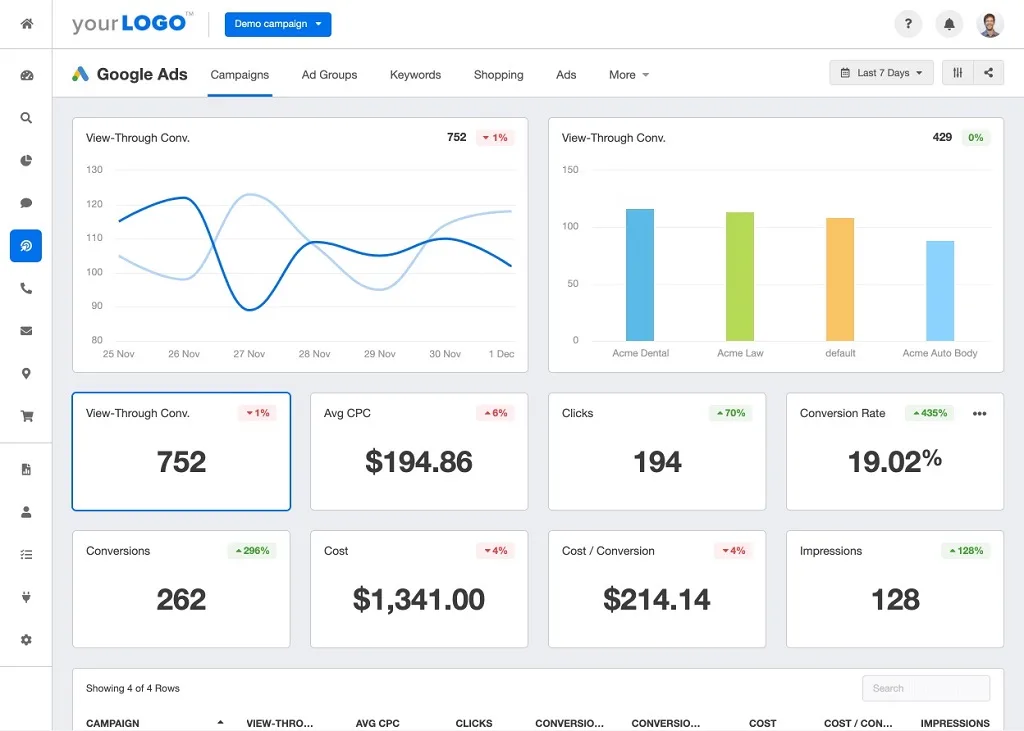
Google Ads: Your Key to Successful Digital Advertising
Google AdWords, which has rebranded to Google Ads, is an invaluable asset for marketers aiming to navigate the competitive landscape of digital advertising. This article delves into the essence of Google AdWords, its optimal utilisation, and the manifold advantages it offers to marketers.
Understanding Google AdWords
Launched in 2000, Google AdWords has transformed into Google Ads, becoming the cornerstone of digital marketing strategies worldwide. It’s a pay-per-click (PPC) advertising platform that allows businesses to display ads on Google’s search results pages and its wider network. The versatility of Google Ads lies in its ability to cater to various advertising goals such as increasing website traffic, enhancing brand visibility, and driving sales.
At its core, Google Ads operates on a bidding system where advertisers select keywords relevant to their business and bid for their ads to appear in the search results for those terms. This system ensures that ads are displayed to potential customers actively seeking related products or services, making the ads highly targeted and effective.
Maximising Google AdWords Usage
To harness the full potential of Google AdWords, it’s essential to embark on a strategic approach. Initially, conducting thorough keyword research to identify terms closely associated with your business offerings is crucial. This foundation paves the way for crafting compelling ad copies that resonate with your target audience, alongside selecting the appropriate ad formats that align with your campaign objectives.
Setting up targeted campaigns and ad groups enhances the manageability and effectiveness of your advertising efforts. Moreover, utilising Google Ads’ robust analytics and reporting tools allows for the meticulous monitoring and adjustment of campaigns based on real-time performance data. Such a data-driven approach empowers advertisers to optimise their campaigns, concentrating resources on high-performing strategies.
Effective campaign management involves ongoing refinement, including the adjustment of bids, the exploration of new keywords, and the testing of ad variations. These practices are vital for improving ad visibility, click-through rates, and overall campaign performance.
Benefits of Google AdWords
Google AdWords offers unparalleled advantages, starting with its expansive reach. It enables advertisers to connect with a vast audience across the globe or focus on a specific locality. The platform’s detailed targeting options allow for the fine-tuning of campaigns to reach the most relevant prospects based on factors such as location, language, and device type.
Moreover, the PPC pricing model of Google Ads ensures cost-effectiveness, as advertisers only incur costs when their ads are clicked. This aspect, coupled with the flexibility to adjust campaigns in real-time, provides marketers with full control over their advertising spend.
Integration with Google’s suite of services further enriches the advertising experience, offering deep insights into customer behaviour and preferences. These insights facilitate the creation of highly customised marketing messages, enhancing the likelihood of conversion.
The immediacy with which Google AdWords delivers results is another significant benefit. Unlike other marketing strategies that may take months to bear fruit, AdWords can generate traffic and leads shortly after a campaign is launched.

Tips for Google AdWords Beginners
For newcomers to Google AdWords, understanding your marketing goals and budgetary constraints is fundamental. Prioritise crafting ad content that is highly relevant to your audience’s search intent. Employing negative keywords can help prevent your ads from appearing in unrelated searches, thereby improving campaign efficiency. Additionally, leveraging ad extensions enhances your ads’ visibility and effectiveness by providing potential customers with more information and ways to interact with your business.
Success Stories with Google AdWords
The versatility of Google AdWords is reflected in numerous success stories across various industries. From local businesses utilising local search campaigns to drive in-store traffic, to e-commerce giants leveraging shopping ads to boost online sales, the applications are vast and varied. Non-profits have also benefited from Google Grants, demonstrating AdWords’ adaptability to different marketing needs and objectives.
In conclusion, Google AdWords stands as a potent tool in the marketer’s toolkit, capable of driving significant marketing success. By leveraging its comprehensive features and continuously refining strategies based on performance analytics, advertisers can maximise their investment and achieve their marketing objectives.
